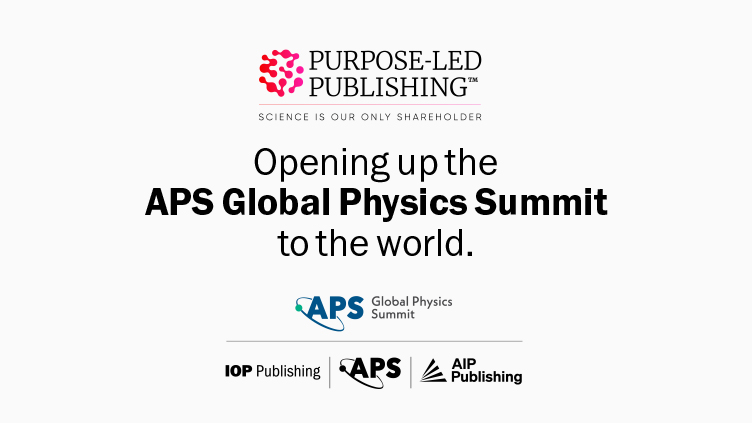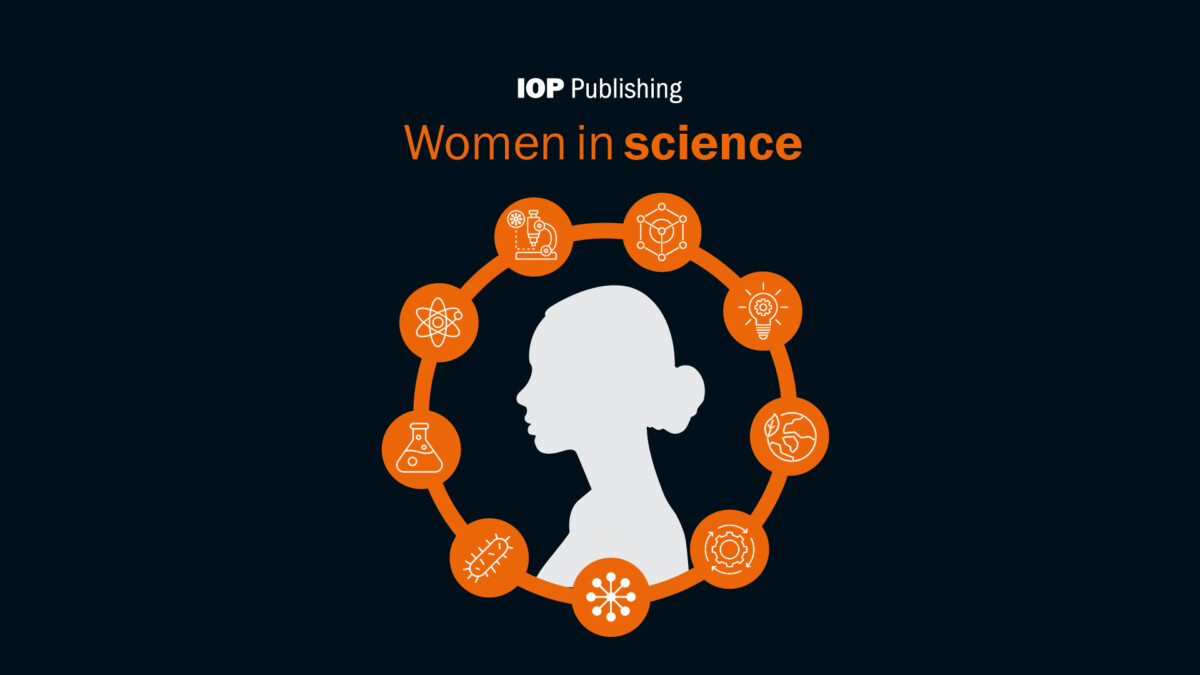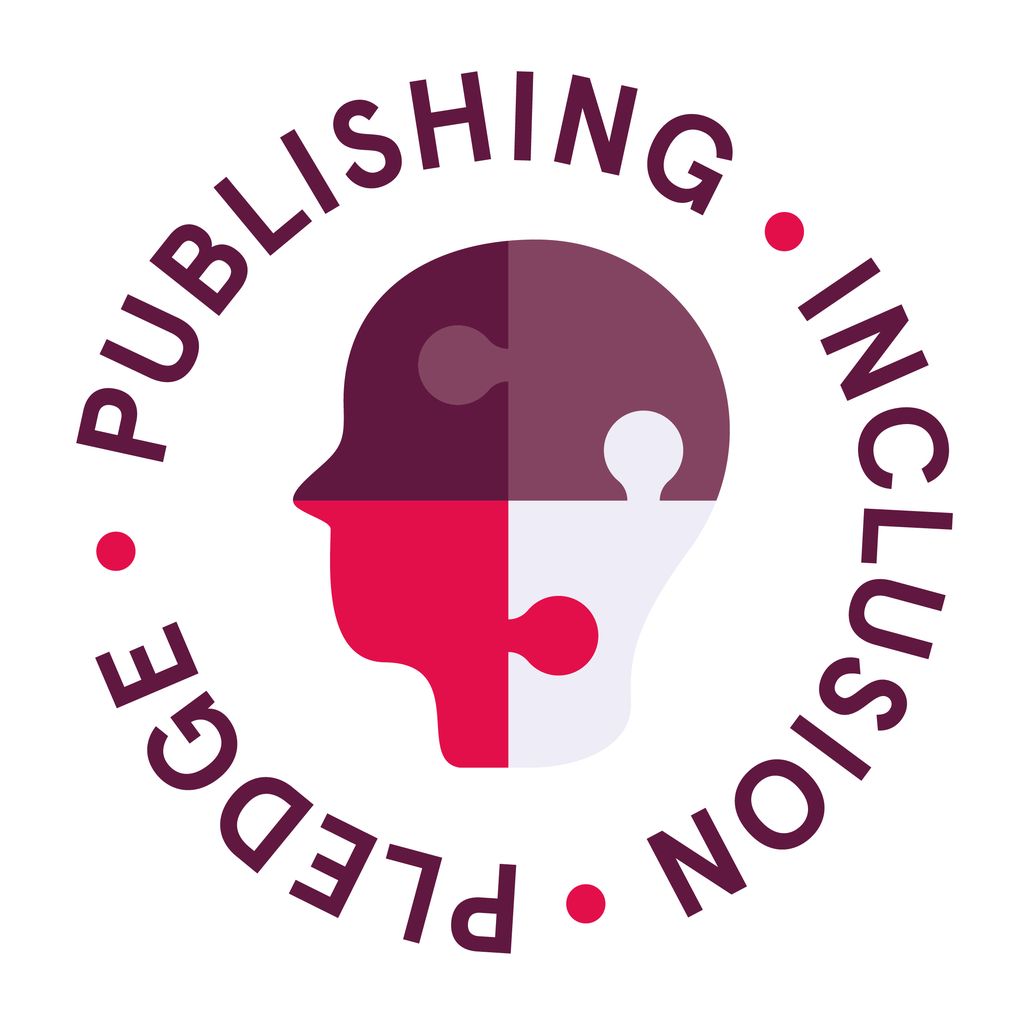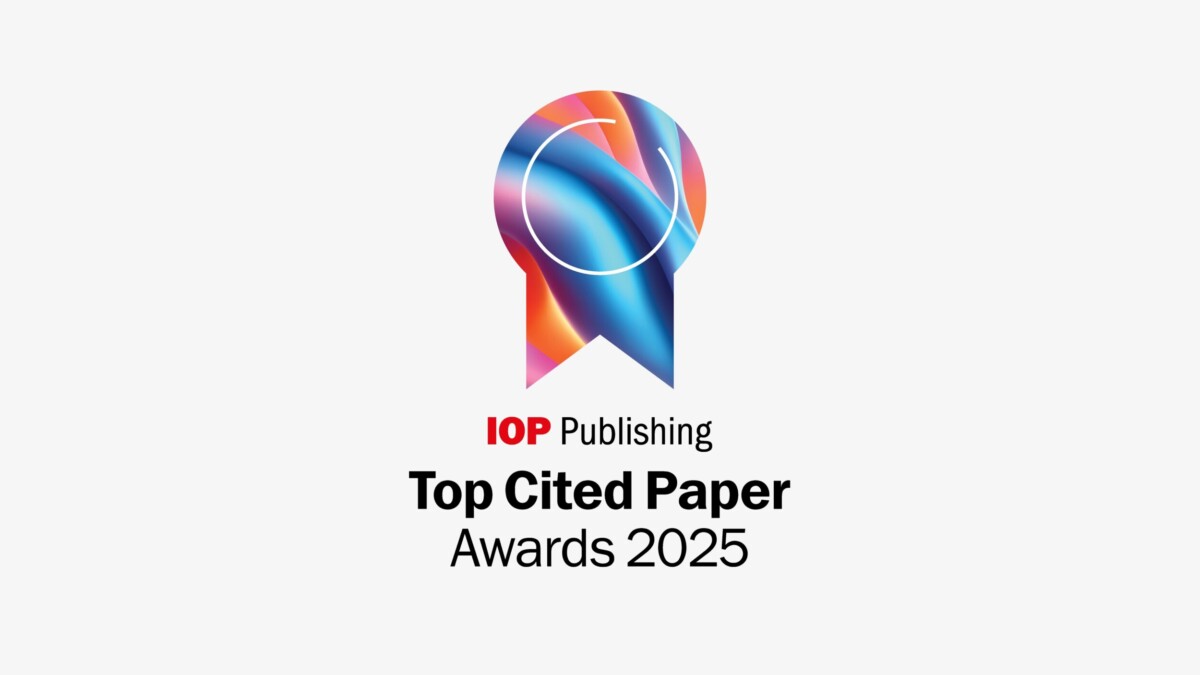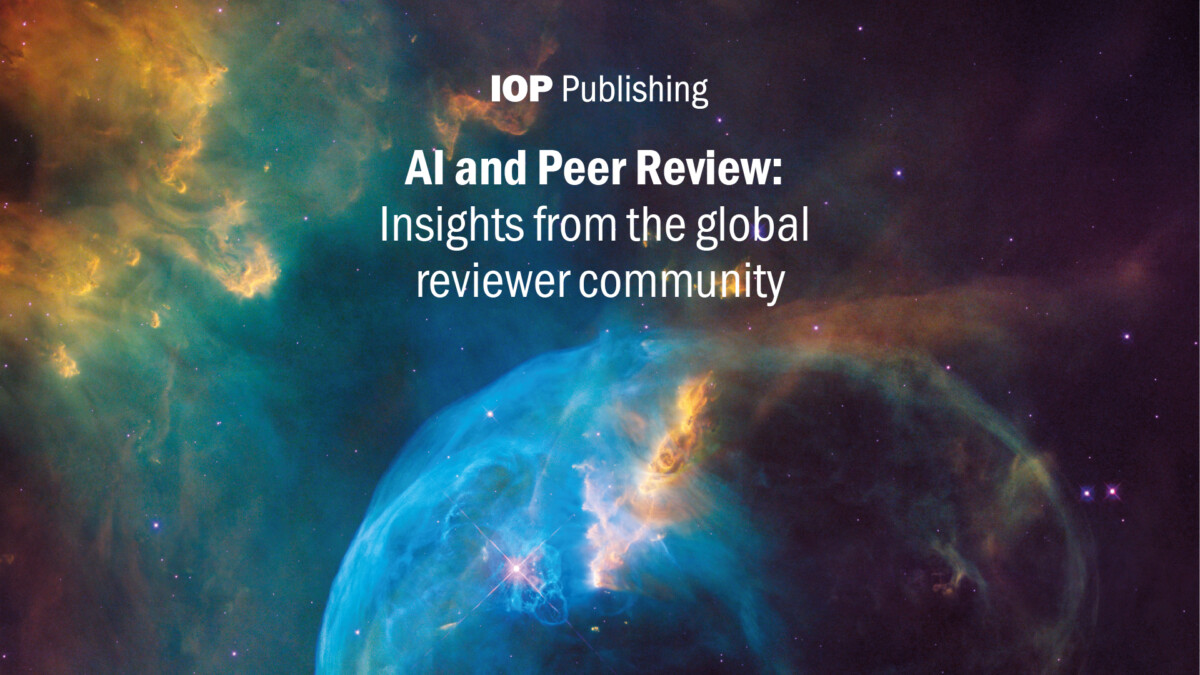Company News
-

Purpose-Led Publishing unveils global event network to bring the APS Global Physics Summit to communities worldwide
Purpose-Led Publishing (PLP) – the coalition formed by AIP Publishing, the American Physical Society (APS), and IOP Publishing – is hosting a network of 23 satellite events across the globe to expand participation in the 2026 APS Global Physics Summit. Taking place in March in Denver, the Summit is one of the world’s leading gatherings for […]
-

Celebrating the women shaping the future of science and scholarly publishing
To mark the United Nations’ International Day of Women and Girls in Science, the Institute of Physics and IOP Publishing celebrate women who are advancing scientific discovery and help to build a research culture where everyone can thrive. This year, we are highlighting the voices of women whose work is pushing their fields forward. This includes members of our editorial boards, researchers and reviewers whose papers and expertise are shaping […]
-

IOP Publishing signs the Publishers Association UK Publishing Inclusion Pledge
IOP Publishing (IOPP) has signed the UK Publishing Inclusion Pledge 2026–28, reaffirming its commitment to building a more diverse, equitable and inclusive (DE&I) publishing sector. As a signatory to the pledge, IOPP will strive to ensure fair opportunities and an environment where everyone is respected, heard and supported. The pledge, led by the Publishers Association, brings together […]
-

Open for Nominations: The 2026 2DM Young Scientist Awards
The journal 2D Materials established the annual 2DM Young Scientist Award in both 2024 and 2025, with the aim of encouraging and supporting scientific innovation in the 2D materials community. Building on the success of the first two editions, 2D Materials is once again partnering with the 2026 International Forum on Graphene in Shenzhen & […]
-

IOP Publishing cuts carbon emissions by over a third, driving sustainable change
IOP Publishing (IOPP) has achieved a 36% reduction in carbon emissions compared to its 2020 baseline as part of its sustainability journey. This achievement reflects the publisher’s commitment to embedding sustainability into every aspect of its operations and supporting a more sustainable, diverse, and equitable future for the global scientific community. Key milestones on its journey toward greater sustainability include the move to its new, energy-efficient head office in […]
-

IOP Publishing celebrates Top Cited Paper Awards 2025
IOP Publishing (IOPP) is proud to announce the winners of its Top Cited Paper Awards 2025, recognising the top one percent of most-cited papers published in its propriety journals. This year’s honours include: The recognised papers span a broad range of disciplines – from astrophysics and astronomy to biomedical science, environmental research, and sustainability. Across […]
-

Nobel Prize in Physics awarded to IOP Fellow and team for work in quantum technology
The Institute of Physics (IOP) and IOP Publishing extend their warmest congratulations to IOP Fellow John Clarke FInstP FRS, and his colleagues Michel Devoret and John Martinis, on winning the 2025 Nobel Prize in Physics for their work in the development of quantum science – especially meaningful in this, the UNESCO International Year of Quantum […]
-

Reviewers increasingly divided on the use of generative AI in peer review
A new global reviewer survey from IOP Publishing (IOPP) reveals a growing divide in attitudes among reviewers in the physical sciences regarding the use of generative AI in peer review. The study follows a similar survey conducted last year showing that while some researchers are beginning to embrace AI tools, others remain concerned about the […]
